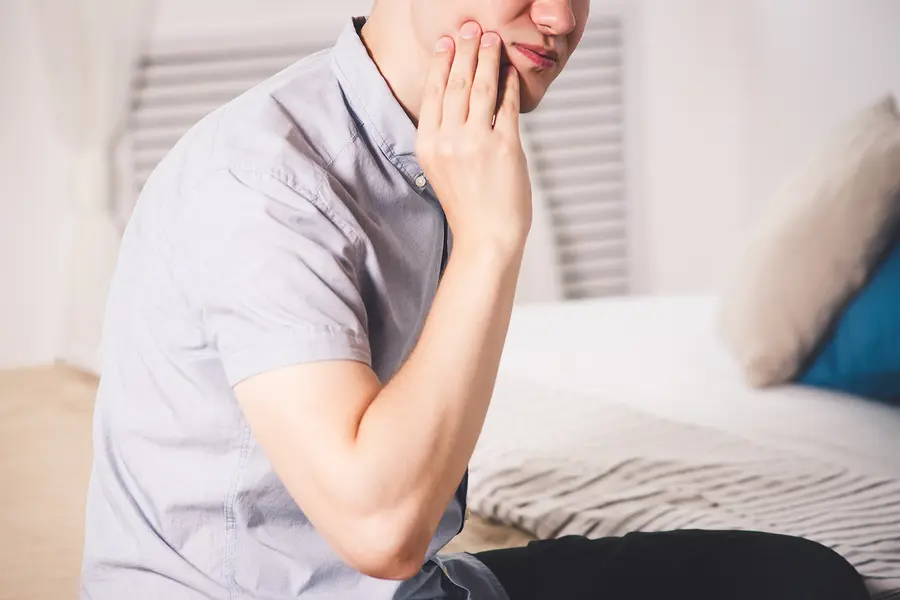17 Jun Experiencing Jaw Pain: Could it be TMJ?
 TMJ stands for temporomandibular joint. This joint is located on each side of the face just above the jaw in front of the ear. Placing your fingers on this point and opening and closing your mouth will allow you to feel its movement. The TMJ allows jaw movement up and down, back and forth as well as side to side.
TMJ stands for temporomandibular joint. This joint is located on each side of the face just above the jaw in front of the ear. Placing your fingers on this point and opening and closing your mouth will allow you to feel its movement. The TMJ allows jaw movement up and down, back and forth as well as side to side.
These joints experience a workout each day. Speaking, smiling, chewing, yawning … these actions require constant movement of these joints. Patients that grind or clench their teeth place even more pressure on this area. It is easy to see why patients might experience discomfort in the jaw.
When discussing TMJ as a dental condition, the patient is experiencing inflammation or joint dysfunction that results in discomfort in the jaw, neck, head or ear area. Patients often report hearing or feeling a clicking in their jaw.
During a dental exam, your dentist will place fingers over these joints and ask you to open and close your mouth. They are feeling for any abnormality that will point to problems with the TMJ.
Patients experiencing a problem in either or both joints can look at a malocclusion (a condition where the top teeth do not align properly with the bottom teeth) as one possible cause. That is usually because when teeth do not match up, patients might end up grinding teeth and clenching the jaw. This puts pressure on the jaw joints.
An injury can impact the TMJ, stress, and disease such as arthritis all can result in soreness due to inflammation. Unfortunately, TMJ is not easily diagnosed as symptoms are varied. While one patient might experience headaches, another individual might have pain in the ears. Since bite problems are often the basis of the problem, there is a possible solution.
While it may not be easy to correct a malocclusion, one way to seek relief is with a mouth guard. When stress results in grinding or jaw clenching, it is likely to occur subconsciously during sleep. A professionally fitted mouth guard will help prevent clenching during sleep.
Your dentist might be able to prescribe medication to help ease inflammation. Exercises to control stress might be recommended. But a great solution involves a visit to the dentist to get a correct diagnosis and recommended course of treatment.
Contact the office of Drs. Bonner & Huriega at 210-616-0858 today and schedule your exam.




